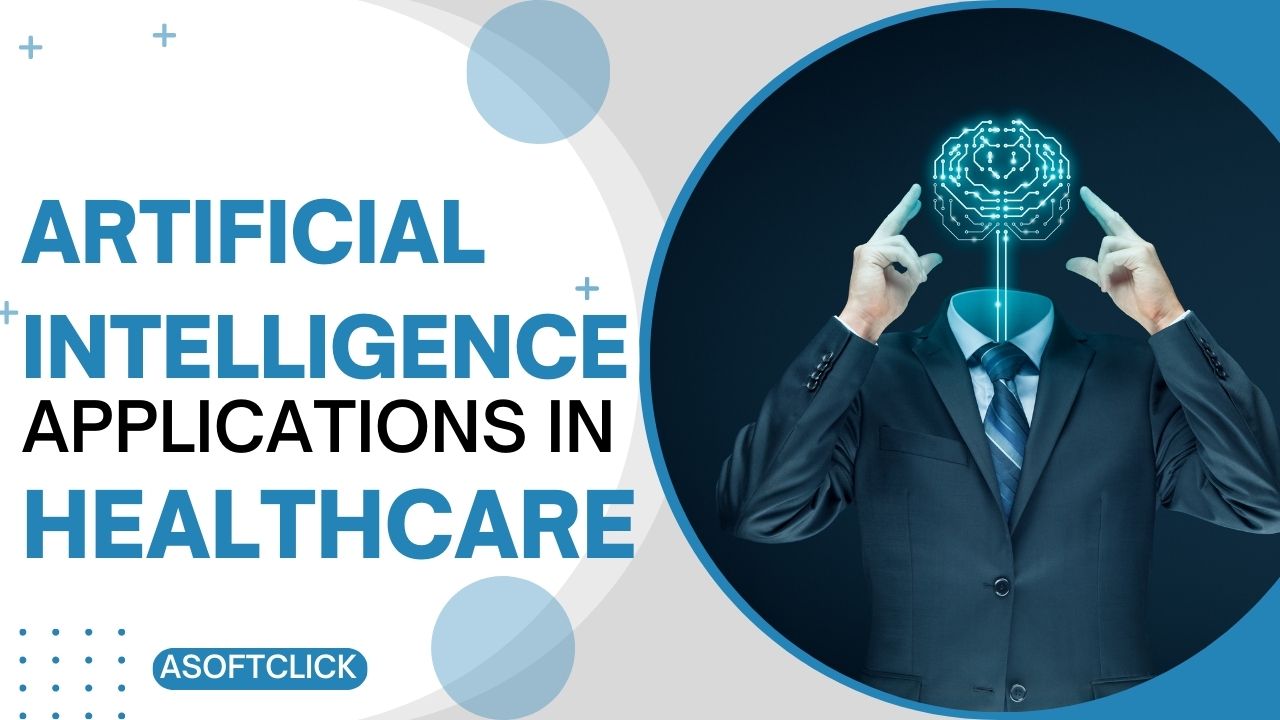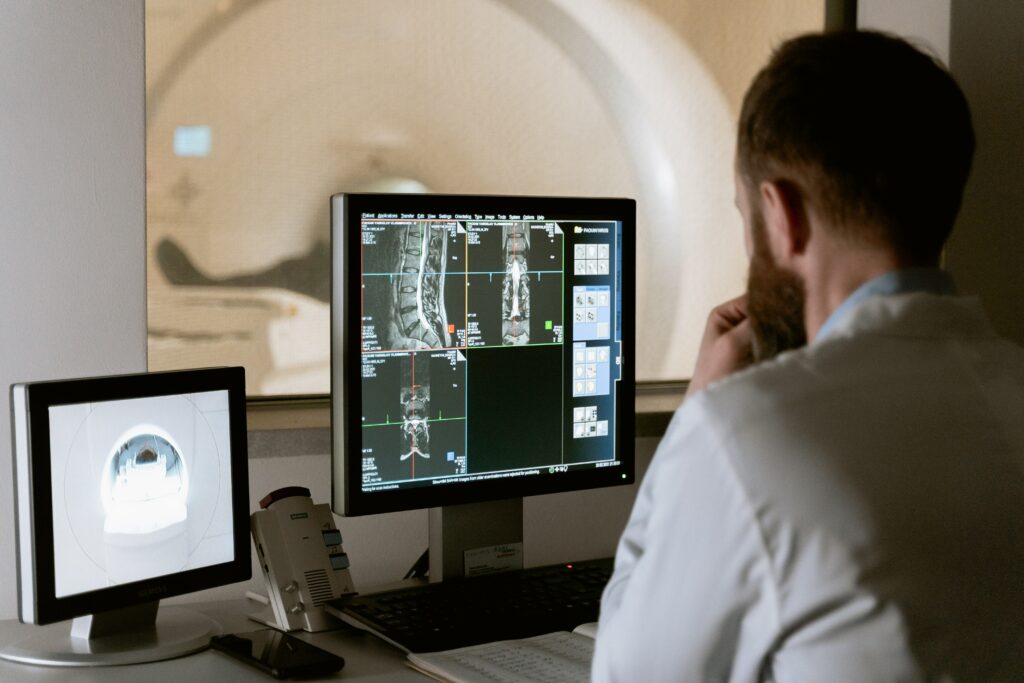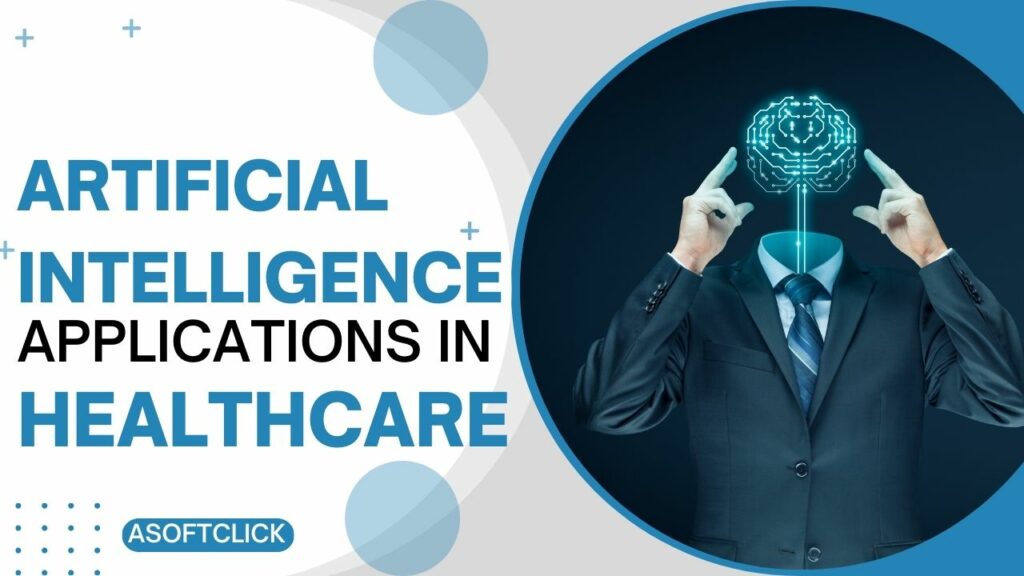 Technology has come a long way. It is difficult to imagine what many industries looked like prior to the kind of technology we have now. Educational institutions have only improved with the use of computers and software to aid in improving their libraries and resources, while businesses experiment with new kinds of automation software every day to improve the daily routines done inside the office. The healthcare industry is not an exception to these developments. But what are the artificial intelligence applications in healthcare?
Technology has come a long way. It is difficult to imagine what many industries looked like prior to the kind of technology we have now. Educational institutions have only improved with the use of computers and software to aid in improving their libraries and resources, while businesses experiment with new kinds of automation software every day to improve the daily routines done inside the office. The healthcare industry is not an exception to these developments. But what are the artificial intelligence applications in healthcare?
Artificial Intelligence Applications in Healthcare
The healthcare industry is constantly finding new ways to incorporate new technology into its research and treatment processes because of its necessity to improve lives. One particular field of technology that is making waves in changing it is artificial intelligence (AI). Artificial intelligence is especially popular for improving the accuracy of all kinds of healthcare processes. Such as diagnosis and treatment, to everyday managerial actions like logging in patients and tracking their health records.
In this article, we’ll delve much deeper into the artificial intelligence applications in healthcare. As well as the kinds of artificial intelligence (AI) technology are being used today. And what their modern-day applications are. Moreover, we’ll also discuss how the healthcare industry looks now with these new improvements in technology.
The new age of healthcare

The introduction of technology to the healthcare industry changed the way healthcare professionals approach general patient care. With new approaches to technology, including artificial intelligence (AI), healthcare professionals have evolved to prioritize personalized care and data-driven solutions. It’s to ensure that each patient is given the proper care they need, based on the information available and compiled by technology.
Instead of using old methods that are quite general to diagnose a wide array of people, doctors design specific treatments to ensure that each patient gets the care that they need. This is with the help of technology to aid in assessing a patient’s genetics and family history to determine their risk factors. Any previous injuries and health complications, and other information that can be helpful in improving a patient’s condition. Besides this, technology and artificial intelligence helps in automating digital healthcare. Such as by creating software where patients can monitor their health records, check-ups, and more.
Technological advancements

The healthcare industry has seen many advancements, especially in software that is rooted in artificial intelligence. An example of such advancement is with deep learning technology. Deep learning AI is a kind of learning that is developed for machines to imitate the way humans obtain new information. When applied in the healthcare sector, deep learning software can aid in helping professionals collect and analyze patient data faster. This makes it especially helpful for healthcare institutions, such as hospitals, clinics, and even laboratories, that are busy accommodating a lot of people at one.
Deep learning is an advancement that is groundbreaking because it succeeds traditional softwares with simpler algorithms by several levels because it constantly grows and changes.
Artificial intelligence and medical visualization

Artificial intelligence is not only capable of analyzing written data, but it has also become advanced to a point where it can be able to identify certain anomalies and patterns in medical imaging. Medical imaging is fundamental in medicine because they provide healthcare providers and professionals with information on what kind of conditions patients have. Medical images include patient scans from x-rays, MRIs, CTs, and more.
One of the biggest plights that medical professionals have with medical imaging, however, is that some abnormalities that do exist are not always seen with the normal eye. This can lead to misdiagnosis, or even no treatment at all, for patients who may be struggling with life-threatening conditions that are rare. Today, more and more people are developing algorithms for artificial intelligence software to be able to identify such abnormalities that the human eye may easily miss. As AI develops to meet this need, diagnosing and treating patients is possible without even having to pursue surgery.
Machine vision for diagnosis and surgery

Another field of artificial intelligence that is quite related to medical visualization is machine vision technology. In health care, machine vision is essentially a second set of “eyes” that are added to machinery and tools used in the process of diagnosing, treating, and even performing surgery on patients. Not only are these machines able to detect certain defects and issues in everyday medical images, but they are also able to help provide suitable courses of action depending on what kind of issue they are.
This is possible with the use of special algorithms that teach this artificial intelligence software how to make decisions. Basing it on the images that it sees. Middleware supports AI. It helps in processing both the imaging that the machine sees and the decisions it makes based on the image that it sees.
Computer vision for diagnosis and surgery
Computer vision can be used in every single field of medicine today. It is essentially the same as machine vision. But with the help artificial intelligence software to identify and analyze certain images, actions, and conditions that can help medical practitioners create informed decisions on what is the best course of action to take in patient care. It is used in fields such as radiology, cardiology, and more.
In cardiology, for example, computer vision helps in diagnosing patients by first taking images or scans of their heart. Then analyzing them to see if there are any anomalies in its development or state. However, outside of medical imaging using artificial intelligence, it also helps before surgery and during surgery. Before surgery, doctors may use AI to visualize how they can repair a heart’s arteries. Also a patient’s blood flow, or how they can help mend bones. This is important because it prepares surgeons for how the procedure will be like.
Finally, computer vision can help create personalized treatment plans for patients based on the data it is provided. Either from the images that it has analyzed or the data it has been given by the medical care practitioners. Variables and risk factors can be analyzed more accurately with this kind of technology to give patients the best care that they can get.
Deep learning and medical image recognition
When we apply deep learning to medical image recognition, it becomes an excellent tool for analyzing everyday medical problems to rare cases that need a lot of attention. Artificial intelligence algorithms provide more accurate images by using segmentation and registration. Various researchers are attempting to use deep learning in these processes, but there is still a limit on research and application. With some studies suggesting that deep learning cannot be fully integrated. However, it has promising capabilities in helping practitioners better understand human anatomy and medical cases.
We may also apply deep learning in analyzing images and linking them to existing data to understand what the image means. By using deep learning in analyzing patient scans and x-rays, technology may help to speed up the diagnostic process for patients.
1. Managing Medical Records

One of the most well-known uses for technology in the health care industry is by managing patient information. This is in line with the shift into emphasizing primary care and patient experience over generalized medicine. Nowadays, patients and medical workers can access information such as medical records, appointment details, and other related data through online software. Artificial intelligence helps in automating processes such as setting appointments and updating health records. Which makes it easier for patients to upkeep, even if they aren’t too familiar with the technology.
2. Doing Repetitive Jobs
Work in the medical field can be quite repetitive and time-consuming for medical workers. By using artificial intelligence to perform tasks such as logging in patient records, compiling health and even analyzing everyday scans. Artificial intelligence software helps in automating these jobs and making it easy for health workers to prioritize other cases and tasks that require much more labor and physical attention.
3. Treatment Design
Treatment design refers to the kind of treatment that a patient will undergo after being diagnosed with an illness or health condition. It concerns providing patients certain kinds of medications and even check-ins in a hospital or clinic. Using AI can speed up designing treatments. Where software can make treatments on patterns after professionals log them.
4. Digital Consultation
Showing up to physical check-ups can be a hassle, especially for those that have more serious illnesses that can impede on their mobility. Health software that focuses on telecommunication is a great alternative to this issue. Patients and healthcare providers can communicate online, which can be a more convenient alternative for both parties.
5. Virtual Nurses
Whenever there are patients who want to pursue consultations and appointments online, virtual nurses are the ones who accommodate them. They are available to answer questions and concerns to those who inquire about different services or protocols.
6. Health Monitoring
Wearable technology with AI capabilities may track a patient’s health in real-time, such as by monitoring a variety of biometric data. Such as blood pressure, glucose levels, and heart rate, which can assist spot possible health problems early on. These include devices such as Apple watches or Fitbits. Besides this, there are also other remote monitoring tools to monitor patients or even disease outbreaks using AI algorithms.
How AI Is Enhancing Robotic Surgery

We’ve talked about how artificial intelligence changed the way healthcare approaches diagnosing and treating patients. But now, we’ll better discuss its place in surgery. By delivering cutting-edge capabilities that enhance surgical results, lower surgical complications, and expedite the surgical procedure, artificial intelligence is improving the way surgery functions.
AI may also help surgical equipment to provide the surgeon with immediate feedback and direction while they are doing the process. For instance, sensors on surgical equipment can provide the surgeon with haptic input to warn them when they are getting close to a delicate structure like a nerve or artery in the heart. Artificial intelligence can also be applied outside of surgical instruments and machines. Such as in the operating room itself. Setting up equipment, changing lighting and temperature, and getting the patient ready for surgery are all typical operations that AI can automate. This increases effectiveness and frees up the surgical team to concentrate on more challenging jobs.
Are You Benefitting from Applications of AI in Healthcare?
AI algorithms have been game changers in making the healthcare industry more efficient and patient-centered. Overall, the use of AI in healthcare is improving patient outcomes, boosting productivity, and raising the standard of care. Accurate diagnosis, individualized therapies, and quicker access to novel therapies better help patients. It also lessens the load of medical workers who are struggling with long working hours and laborious shifts.
What are some AI applications in Healthcare IT?
Modern healthcare delivery depends heavily on healthcare information technology (IT). It helps enhance the overall quality of treatment, boost efficiency, and improve patient outcomes. Information technology (IT) in healthcare is the use of technology to manage and organize healthcare data. It refers to a broad variety of tools, systems, and technology used to enhance the effectiveness and quality of healthcare delivery.
Electronic health records (EHRs), clinical decision support systems (CDSSs), medical imaging systems, telemedicine platforms, wearable technology, and healthcare analytics tools are a few examples of healthcare IT. These tools can assist healthcare providers in managing patient data. Also in streamlining administrative procedures, and giving patients more individualized and effective care.
What are some good uses for Artificial Intelligence in healthcare?
Artificial intelligence may help in improving medical imaging and analysis. As well as creating medicine and treatments for specific cases. However, another aspect of its application in healthcare is in discovering new drugs for treatment. Huge volumes of data may be analyzed using AI to pinpoint prospective therapeutic targets. And forecast the efficacy of novel medications. By accelerating the medication development process, patients may have quicker access to novel therapies.
What is the best use of AI in healthcare?
Healthcare professionals may alter the way they deliver healthcare. It’s by utilizing AI in novel ways to increase accuracy, efficiency, and patient outcomes. The best way to use it is to constantly use it for good. To treat patients fairly, properly, and ethically. Using the methods listed in this article, such as medical imaging, drug discovery, and more.
You might also like: The Rise of Intelligent Automation: The Future of Work with AI





